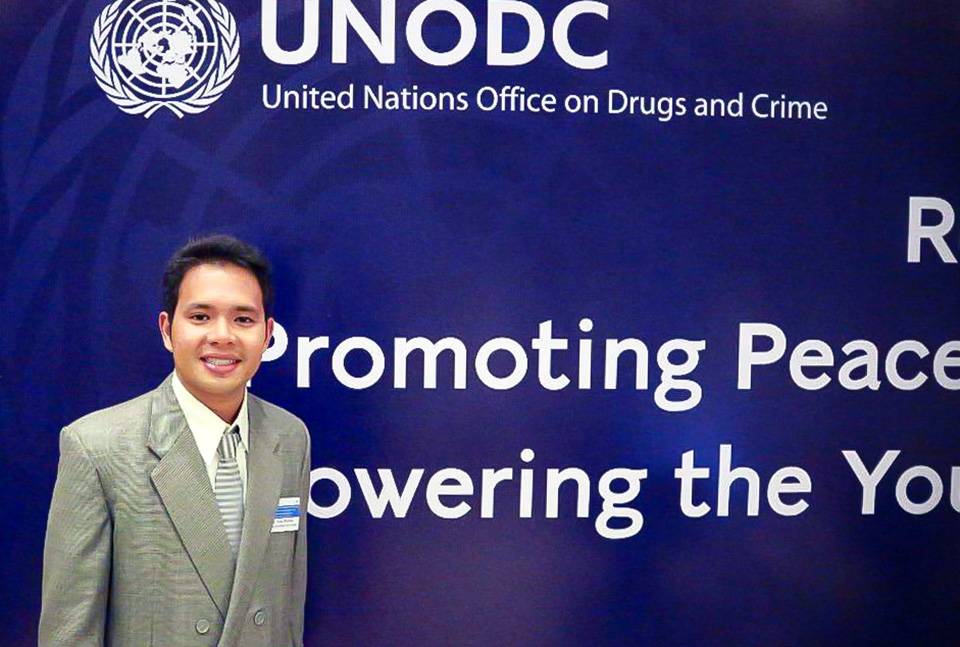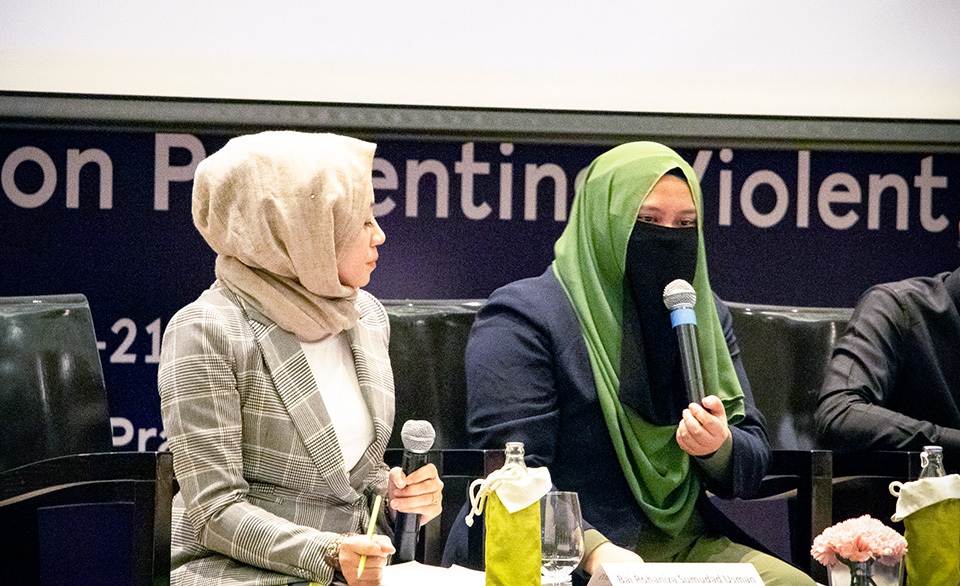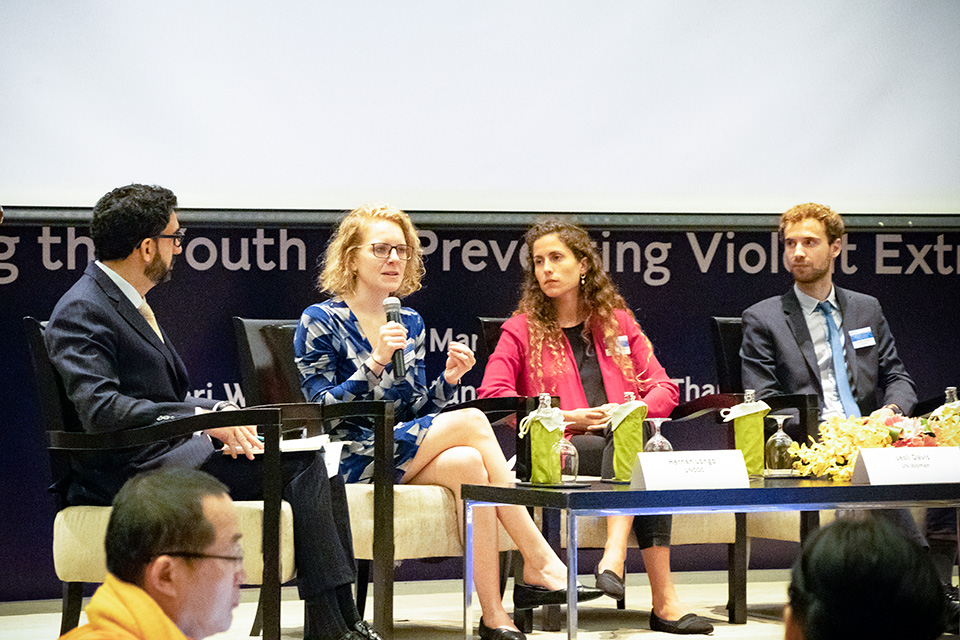Women and youths encouraged to counter extremist groups
Date:
Author: Caitlyn Quinn
Bangkok, Thailand — Extremist groups are increasingly targeting youths and using gender stereotypes as a tool in recruitment, so young people must take the lead in creating strategies to combat radicalization.
On 19-21 March, United Nations Office on Drugs and Crime organized a dialogue in Bangkok called, Promoting Peaceful Engagement: Learning from and Empowering the Youth on Preventing Violent Extremism. A total of 75 people from South-East Asian countries, Japan and Australia participated, including youths, members of governments, and civil society, regional, religious, scholarly groups and four United Nations agencies.

“Not only were we able to gain better insights on the existing frameworks and best practices of tackling the phenomena from different countries, but the platform also provided a bridge between these groups to engage candidly on what can realistically be done together,” UNODC said in a statement.
Teuku Akbar Maulana, a student and a Muslim from Indonesia, was among the about 20 youths at the dialogue. While studying in Turkey, he almost traveled to Syria to join Islamic terrorist group ISIS. Online, he was bombarded with images of other young men, including two of his friends, holding rifles and doing training exercises. To him they looked strong, cool.
“As a young man, we want to be a ‘real man’. That was what I felt,” the 20-year-old explained after the Bangkok dialogue. “They posted their video on YouTube and I saw their slogan ‘haa dzaa arjul rijal’, which means, ‘This field belongs to men.’ So indirectly they tried to say that, ‘You are not a man if you don’t join us here’.”
His own critical thinking and a close relationship with his parents prompted Maulana to return home instead. Now he shares his story to try to warn other youths. “I have … done something stupid in my life and I hope we all can learn from my mistake,” he said.
Participants in the Bangkok dialogue said extremists target women and girls who feel powerless in their communities and convince them that by perpetrating violence, they can obtain power. In taking part in extremist activities, the women “feel like they can make decisions for themselves”, said Ruby Kholifah, Secretary-General of the Asian Muslim Action Network, in Indonesia. “They don’t know that they are being used,” Kholifah said.

Another dialogue participant was Fatima Star Usman Lamalan, 21, Project Coordinator of the Salaam Movement in the Philippines. She later said that youths tempted by extremist narratives need to hear counter-narratives from their peers. “It’s different when you hear it from someone who speaks the way you do, who uses the same language as you do, who dresses the way you do.”
Usman Lamalan said people must avoid perpetuating the perception that young women are passive and vulnerable. This kind of talk is “really disheartening” and “strips off the motivation to empower others”, she said.
It is established that conflict increases in areas where gender inequality is rife. Rising gender-based violence and restrictions on women’s freedoms are common indicators of violent extremism. UN Women’s Gender-Sensitive National Action Plans on Preventing Violent Extremism: Lessons from Asia and the Pacific, says that promoting women’s equality and empowerment “is in itself a counter-measure to the spread of radicalisation and combats the gendered approach used by violent extremist groups in perpetuating their ideologies.”

Women are also integral in preventing violence because they often notice ominous changes in their communities. Lesli Davis of UN Women’s Governance, Peace and Security Programme said women are “seeing things no one else is seeing”, such as when men and boys go missing, weapons are stockpiled, people act aloof and suspicious, and suddenly acquire money. In order to better engage women in preventing violent extremism, they need to be equipped with the skills and confidence to report this information.
We all should help students, teachers, parents and others in the community prevent violent extremism, said Jun Morohashi, Head of Executive Office and Regional Programme Coordinator at United Nations Education, Scientific and Cultural Organizations. Education’s role, she said, “is not to intercept violent extremists or identify individuals who may potentially become violent extremists, but to … build the defenses of peace within learners through values, skills and behaviors that reject violent extremism, and by strengthening their commitment to non-violence and peace”.